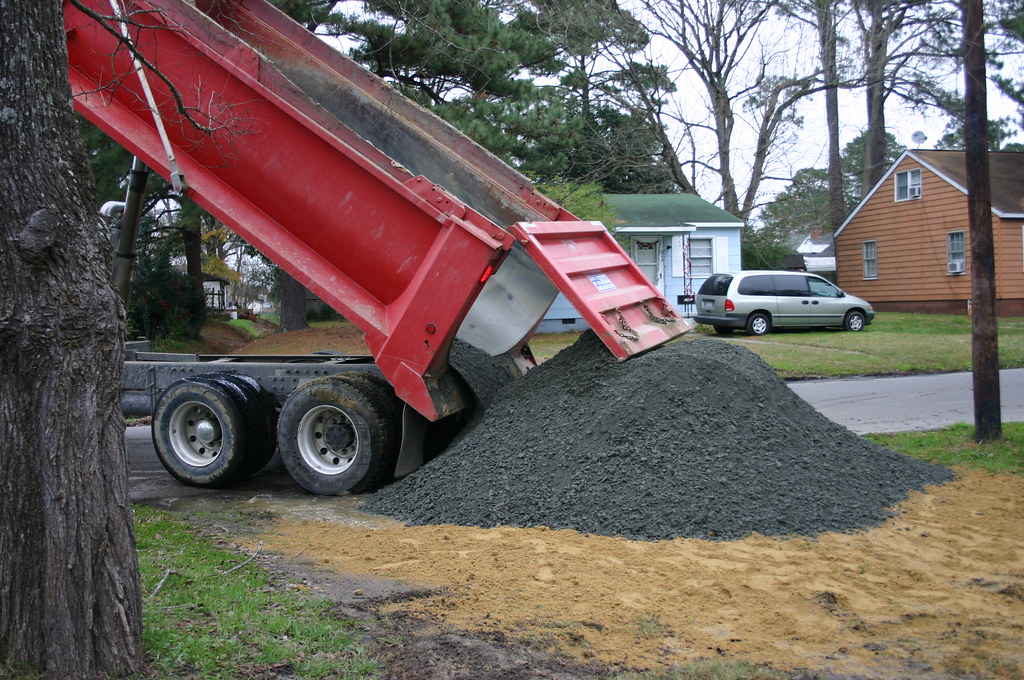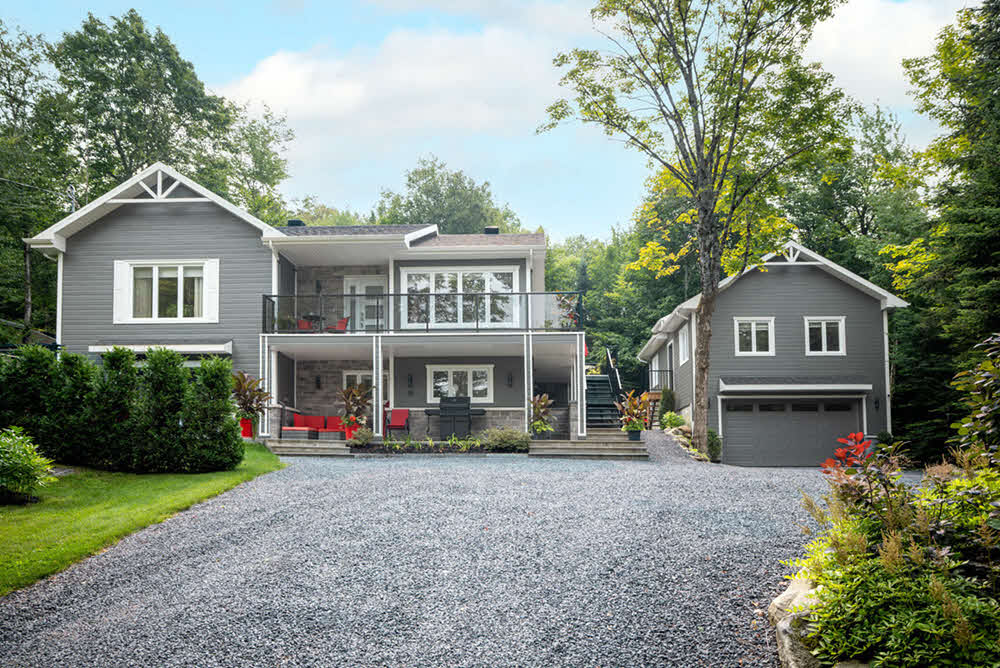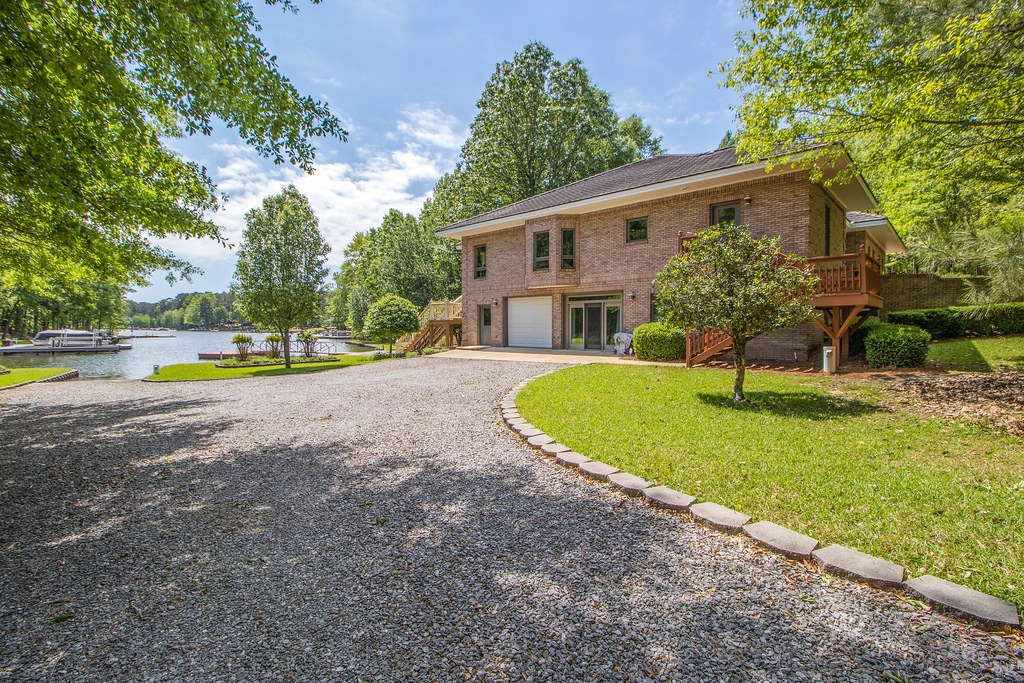Gravel Drivewaysin Romeo MI
Expert Gravel Driveway Installation for Lasting Durability
We Are Locally Owned & Operated For Over 37 Years
Contact Us Today!
We Serve Businesses In And Around The Following Cities:
About Gravel Driveways
A Comprehensive Guide to Gravel Driveways for Commercial Properties in Romeo
Gravel driveways are an increasingly popular choice in urban areas, particularly in the scenic city of Romeo where design aesthetics and durability are paramount. They provide an economical and stylish solution for businesses seeking to upgrade their commercial properties. When thoughtfully designed, these driveways are much more than just functional; they add a unique, natural appeal to the landscape.
Understanding Gravel Driveways
A gravel driveway comprises multiple layers of different sizes of crushed stone to form a solid, stable surface. The charm of gravel drives lies in their simple, timeless elegance, blending perfectly with both traditional and modern architecture. Often seen accompanying high-end properties, they are also on the rise in commercial settings, owing to their practicality and lower gravel driveway installation cost. They lend curb appeal, increase property value and are more eco-friendly than their asphalt or concrete counterparts.
Choosing the Right Gravel Driveway for Your Property
The process of laying a gravel driveway on a commercial property requires careful planning and consideration. The choice of gravel greatly affects the function and the style of your driveway, whether you opt for the subtle tones of grey driveway gravel or the standout sparkle of black gravel driveway. Perhaps the pea gravel driveway, with its smooth and rounded stones, suits your aesthetic. A reliable gravel driveway company, such as D&J Contracting, can provide much-needed guidance and ensure top-notch gravel driveway installation by qualified gravel driveway contractors that meets both your budget and design preferences.
The Process of Installing a Gravel Driveway
Accurate grading is crucial when putting in a gravel driveway. Experienced gravel driveway contractors ensure an appropriate slope for efficient drainage, thus preventing water pooling and potential damage. After excavating and grading, they install a high-quality layer of fabric for weed control and stability. This is followed by multiple layers of different types of gravel, each compacted before adding the next, creating a fixed gravel driveway with high structural integrity.
Maintenance and Repairing a Gravel Driveway
Maintenance is an integral part of owning a gravel driveway. Regular grading, driveway gravel leveling, and fixing potholes in a gravel driveway are key to maintaining its functionality and aesthetic appeal. Over time, even the best laid driveways may develop ruts or potholes, but timely intervention can fix these issues. Services such as those offered by D&J Contracting can provide efficient, professional-grade gravel driveway repairs to keep your driveway looking its best while preventing further damage.
Benefits of Gravel Driveways
When businesses consider the average cost to gravel a driveway, they find that gravel certainly offers an economical advantage, but the benefits go way beyond budget planning. Gravel driveways are easy to install and repair, providing a quick solution without major construction disruption. Unlike asphalt or concrete, gravel driveways are flexible and have better traction under most weather conditions, preventing slips and falls. In winter, gravel driveways don’t crack due to expansion or contraction. In addition, they offer excellent drainage, reducing puddle formation and potential flood risks.
Real-World Applications of Gravel Driveways
In Romeo, businesses of all sizes are reaping the benefits of switching to gravel driveways. Cafes and restaurants with outdoor parking enhance their premises with aesthetic gravel driveways, providing more than just ample parking for their customers. Even larger commercial spaces like shopping centers or office parks are choosing gravel for their expansive parking lots due to its affordability, low maintenance needs, and the visual appeal it adds to the landscape.
The beautiful gravel driveways on commercial properties around the city are an undeniable testament to the rising popularity of gravel, with many local businesses recommending D&J Contracting, hailing them as reliable gravel driveway contractors near me. They credit D&J with their comprehensive service, from initial consultation to high-quality installation and after-service maintenance.
Gravel driveways are more than just a practical choice for commercial premises in Romeo; they provide an opportunity to blend functionality with style. While initial cost considerations may draw businesses towards gravel driveways, it’s their aesthetic appeal and convenience that solidifies their decision. As we’ve noted, a well-installed gravel driveway can add significant curb appeal and value to your property, bolstering the first impressions vital for any business.
Whether you’re a small business owner looking to imbue your storefront with rustic charm or a commercial developer aiming to balance functionality, durability and design, gravel driveways are a sensible and attractive option. The professionals at D&J Contracting will provide top-notch installation and maintenance services to ensure your gravel driveway continues to serve and contribute to your commercial property’s attractiveness for many years to come.
Gravel Driveways Gallery


Call Us Today to receive your Free Quote for
Gravel Driveway in Romeo
Serving: Romeo, Michigan

About Romeo, Michigan
A settlement here was originally occupied by the indigenous Chippewa (Ojibwe), an Algonquian-speaking people who were part of a large language family of tribes extending to the Atlantic Coast. Those tribes around the Great Lakes are thought to have migrated to this area by the 12th century.
The early European-American settlers in this area referred to the Chippewa settlement as “Indian Village”. In the 1820s and 1830s more migrant European-American families began to settle in the area, building homes and establishing businesses. They renamed the community “Hoxie’s Settlement”, after a man who opened an inn on Main Street. In 1839, Hoxie’s Settlement became incorporated and was renamed as the village of Romeo. The name was suggested by the wife of local merchant Nathaniel Taylor because it was “short, musical, classical and uncommon.” Romeo celebrated its 175th anniversary on March 9, 2013.
Romeo once served as a trading center for the timber industry, and had many mills processing lumber from the region. Many wealthy timber families resided there. Dozens of stately Victorian mansions survive. Romeo is distinct in the area for having a fairly robust, traditional downtown, which has never suffered a major fire. Because of this, some stores and restaurants downtown have features such as original tin ceilings from the Civil War. In the early 20th century, Romeo was the site of an early business devoted to the new automobile industry: the Detroit Auto Vehicle Company operated here from 1904 until 1908.
The village is in northwestern Macomb County, situated at the southeast corner of Bruce Township, with a portion extending south into Washington Township. Armada Township is adjacent to the east and Ray Township to the southeast. M-53 passes through the east side of the village, leading north 16 miles (26 km) to Imlay City and south 30 miles (48 km) to the eastern side of Detroit.
According to the United States Census Bureau, the village of Romeo has a total area of 2.05 square miles (5.31 km), of which 0.002 square miles (0.005 km), or 0.10%, are water. East Pond Creek crosses the easternmost part of the village, flowing east to the North Branch of the Clinton River, part of the Lake St. Clair watershed.
| Census | Pop. | Note | %± |
|---|---|---|---|
| 1850 | 330 | — | |
| 1880 | 1,629 | — | |
| 1890 | 1,637 | 0.5% | |
| 1900 | 1,580 | −3.5% | |
| 1910 | 1,787 | 13.1% | |
| 1920 | 2,102 | 17.6% | |
| 1930 | 2,283 | 8.6% | |
| 1940 | 2,627 | 15.1% | |
| 1950 | 2,985 | 13.6% | |
| 1960 | 3,327 | 11.5% | |
| 1970 | 4,012 | 20.6% | |
| 1980 | 3,509 | −12.5% | |
| 1990 | 3,520 | 0.3% | |
| 2000 | 3,721 | 5.7% | |
| 2010 | 3,596 | −3.4% | |
| 2020 | 3,767 | 4.8% | |
| U.S. Decennial Census | |||
As of the census of 2010, there were 3,596 people, 1,501 households, and 979 families residing in the village. The population density was 1,780.2 inhabitants per square mile (687.3/km). There were 1,659 housing units at an average density of 821.3 per square mile (317.1/km). The racial makeup of the village was 91.9% White, 3.8% African American, 0.2% Native American, 0.5% Asian, 1.1% from other races, and 2.6% from two or more races. Hispanic or Latino people of any race were 5.7% of the population.
There were 1,501 households, of which 32.2% had children under the age of 18 living with them, 46.2% were married couples living together, 14.9% had a female householder with no husband present, 4.1% had a male householder with no wife present, and 34.8% were non-families. 30.8% of all households were made up of individuals, and 13.6% had someone living alone who was 65 years of age or older. The average household size was 2.36 and the average family size was 2.96.
The median age in the village was 40.9 years. 23.5% of residents were under the age of 18; 7.7% were between the ages of 18 and 24; 24.1% were from 25 to 44; 29.4% were from 45 to 64; and 15.3% were 65 years of age or older. The gender makeup of the village was 46.4% male and 53.6% female.
As of the census of 2000, there were 3,721 people, 1,528 households, and 993 families residing in the village. The population density was 1,842.8 inhabitants per square mile (711.5/km). There were 1,605 housing units at an average density of 794.9 per square mile (306.9/km). The racial makeup of the village was 92.66% White, 4.35% African American, 0.16% Native American, 0.40% Asian, 0.11% Pacific Islander, 0.67% from other races, and 1.64% from two or more races. Hispanic or Latino people of any race were 2.74% of the population.
There were 1,528 households, out of which 33.3% had children under the age of 18 living with them, 48.2% were married couples living together, 13.5% had a female householder with no husband present, and 35.0% were non-families. 31.3% of all households were made up of individuals, and 13.2% had someone living alone who was 65 years of age or older. The average household size was 2.40 and the average family size was 3.04.
In the village, the population was spread out, with 26.1% under the age of 18, 8.2% from 18 to 24, 30.1% from 25 to 44, 21.4% from 45 to 64, and 14.2% who were 65 years of age or older. The median age was 36 years. For every 100 females, there were 87.2 males. For every 100 females age 18 and over, there were 82.5 males.
The median income for a household in the village was $48,015, and the median income for a family was $60,179. Males had a median income of $51,875 versus $27,696 for females. The per capita income for the village was $22,588. About 3.2% of families and 3.9% of the population were below the poverty line, including 6.5% of those under age 18 and 3.9% of those age 65 or over.
The government of the village of Romeo consists of elected and appointed officials. The elected officials include six council members, one president, treasurer and clerk. The appointed officials include the Chief of Police, Department of Public Works Director, and Village Administrator. Currently, the elected clerk also holds the appointed position of Village Administrator. The day-to-day operations of the village are handled by the Clerk/Administrator.
Since the turn of the 21st century, Romeo has worked to upgrade its infrastructure. It has improved the streetscape on Van Dyke Avenue, the main road through the village, and installed a new water tower. It had earlier established one of the few wastewater treatment plants in the region. While most of the metropolitan region receives water and sewage service from the City of Detroit, Romeo independently sustains its own supply of water and manages treatment of village sewage. This was especially valuable during the blackout that occurred throughout the entire northeastern United States on August 14, 2003. Romeo was one of the few areas in the Detroit metropolitan area to have clean running water. More recent infrastructure improvements include a complete renovation of the village water system, and replacement of all the sidewalks throughout the village.
Call Us Today to receive your Free Quote for
Gravel Driveway in Romeo
Related Services in Romeo, Michigan
We Serve Businesses In The Following Zip Codes:
48007, 48015, 48021, 48026, 48035, 48036, 48038, 48042, 48043, 48044, 48045, 48046, 48047, 48048, 48050, 48051, 48066, 48071, 48080, 48081, 48082, 48083, 48084, 48085, 48088, 48089, 48090, 48091, 48092, 48093, 48098, 48099, 48225, 48230, 48236, 48310, 48311, 48312, 48313, 48314, 48315, 48316, 48317, 48318, 48397